Metropoplitan Hilarion: The cross which was an instrument of dishonourable execution becomes the symbol of salvation for millions of people

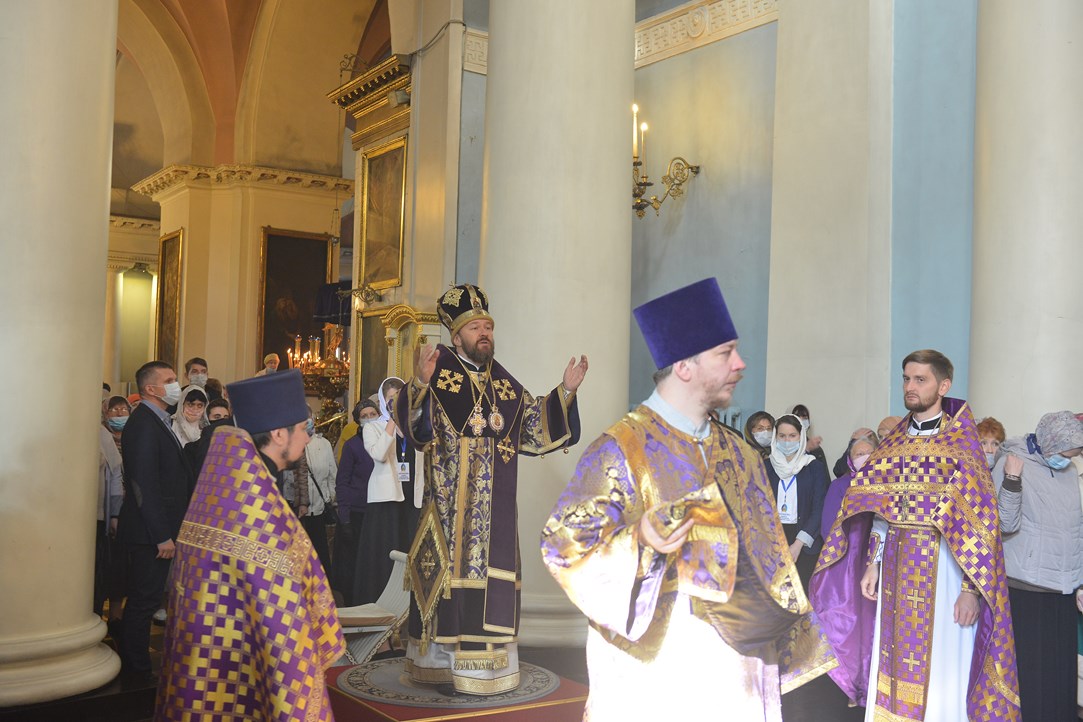



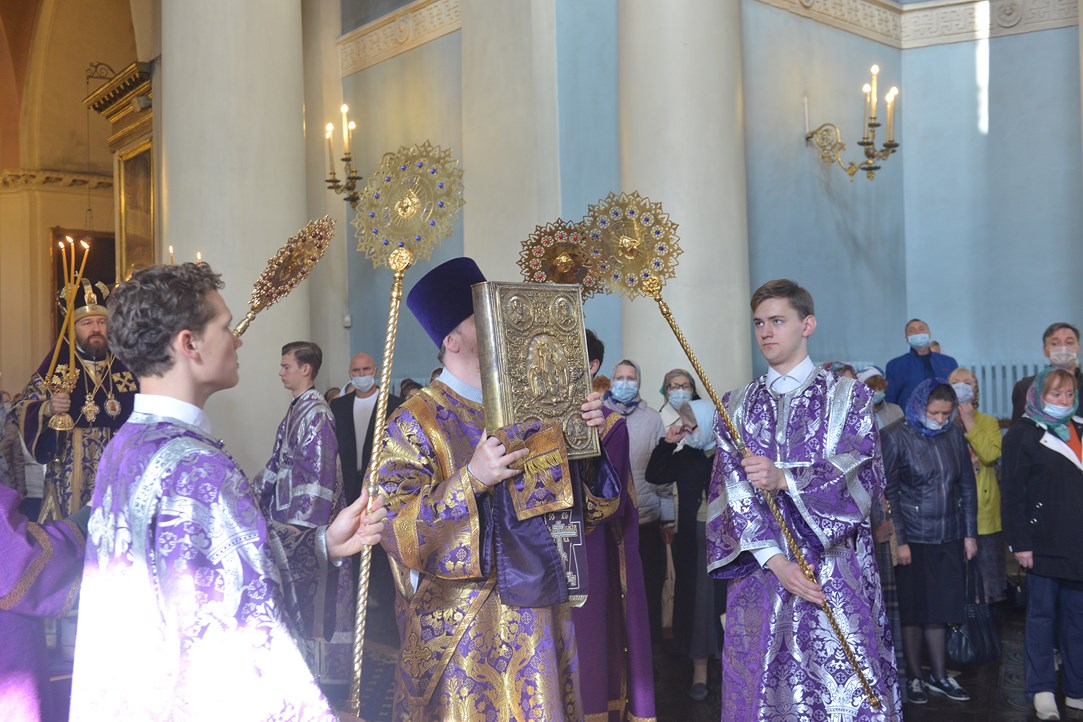


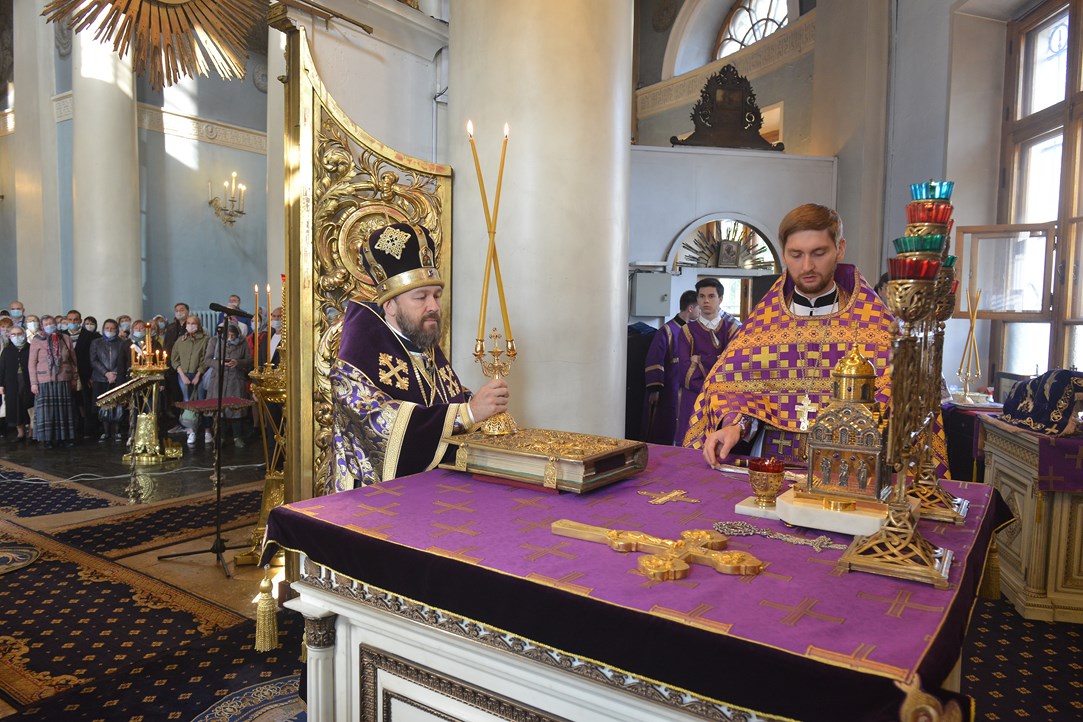


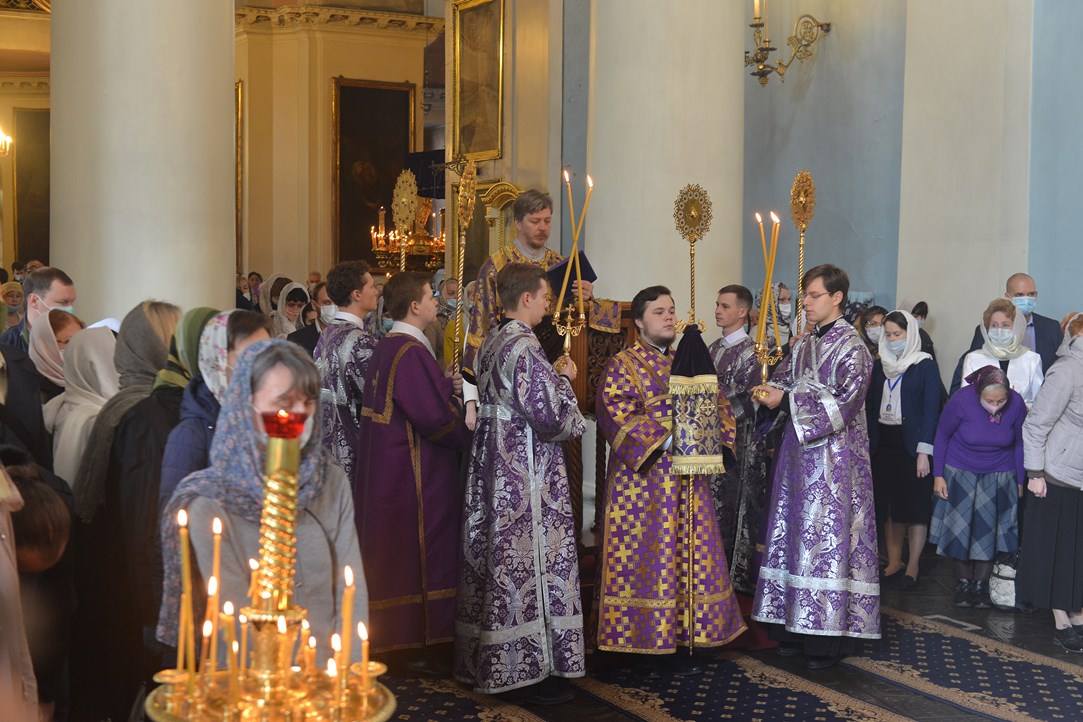

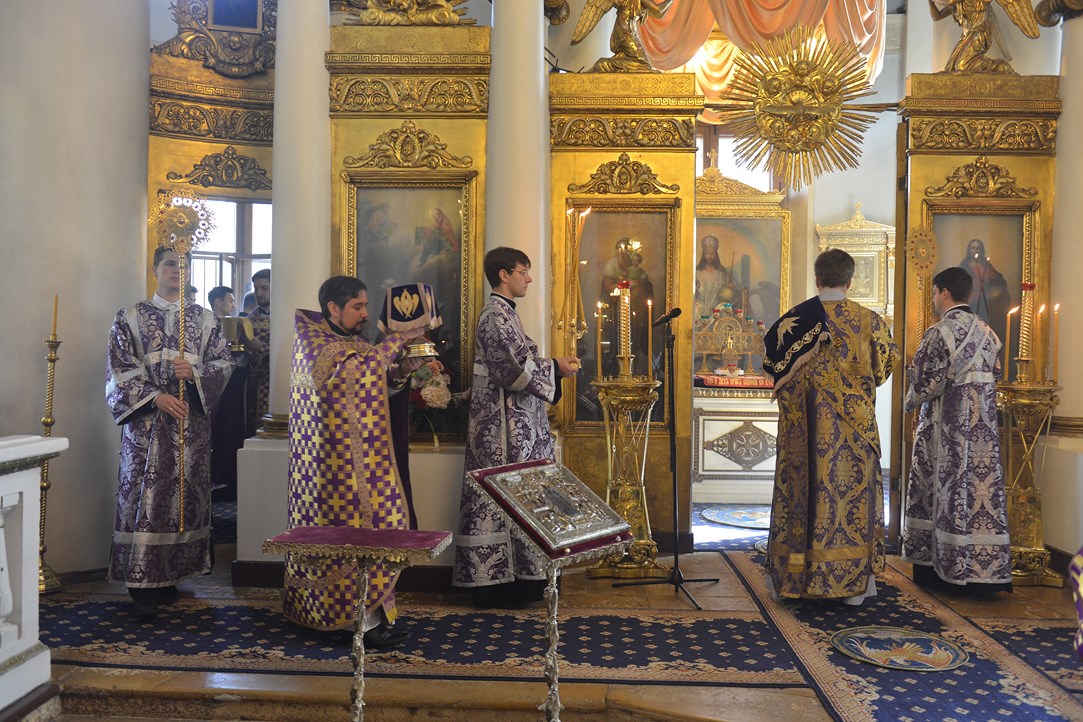
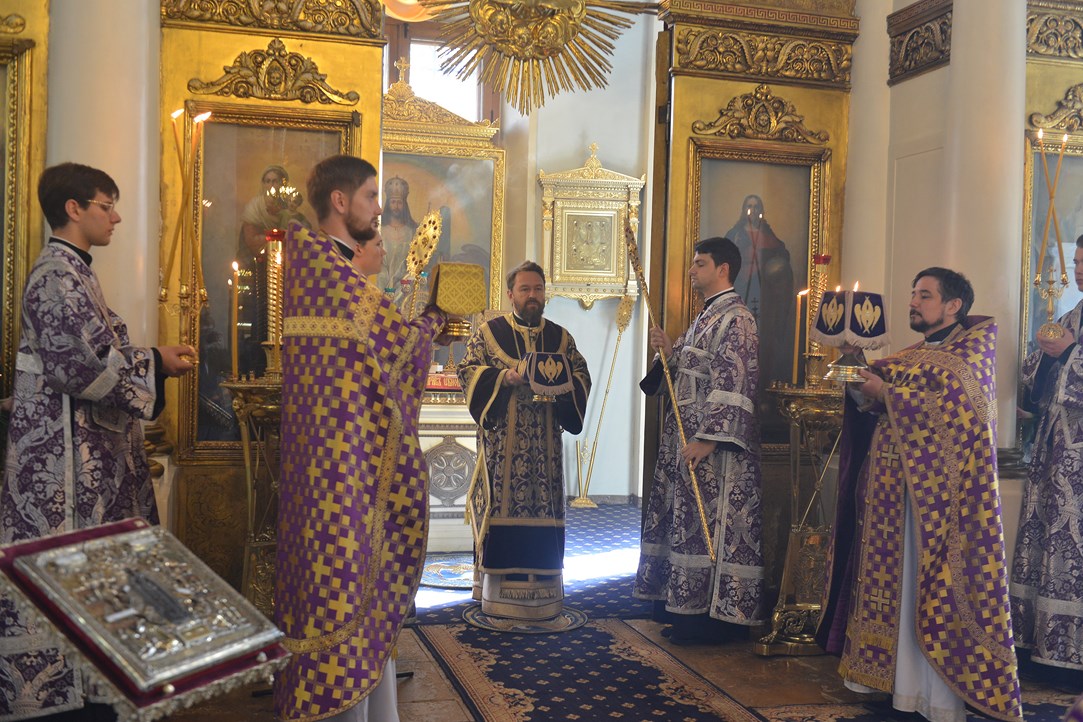


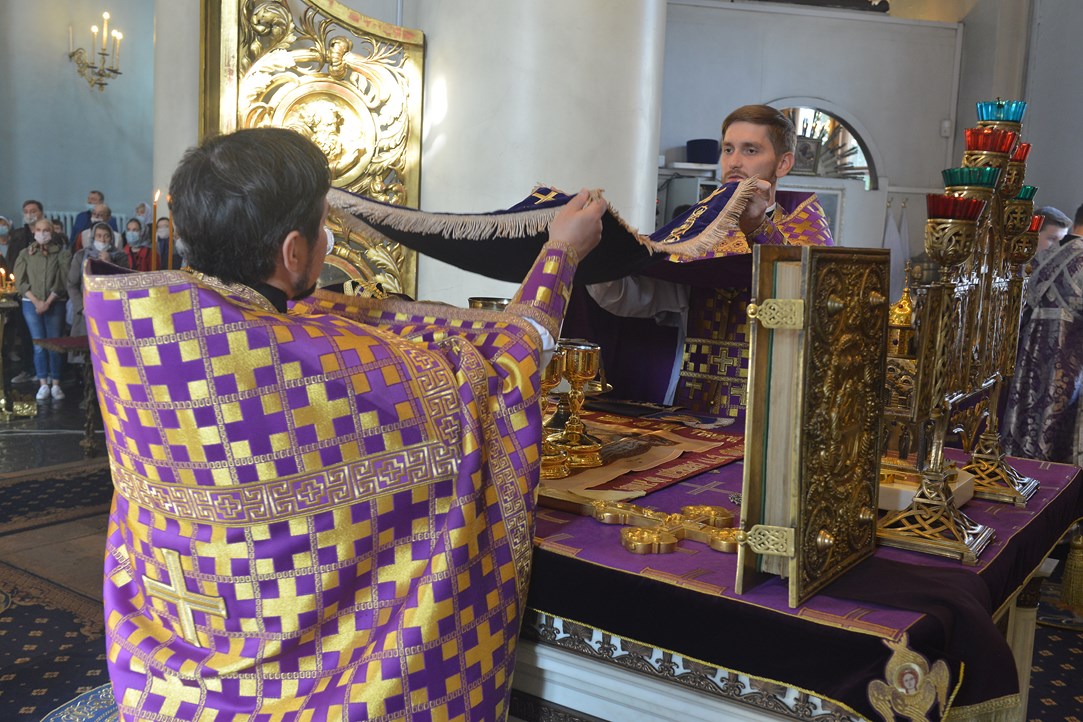

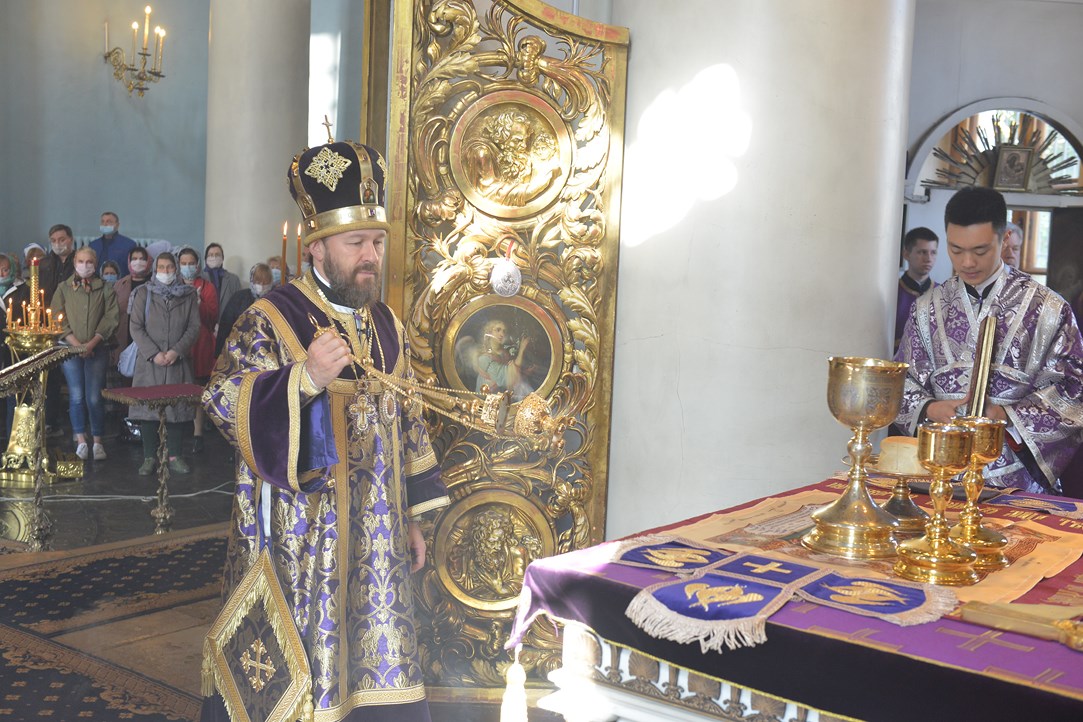

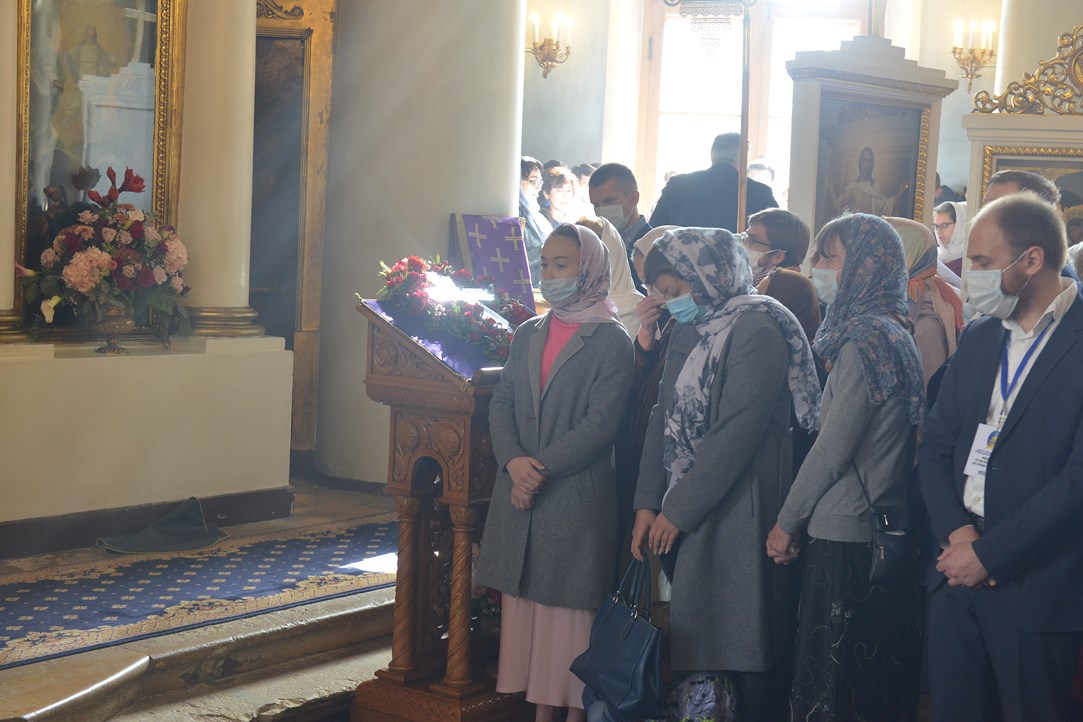

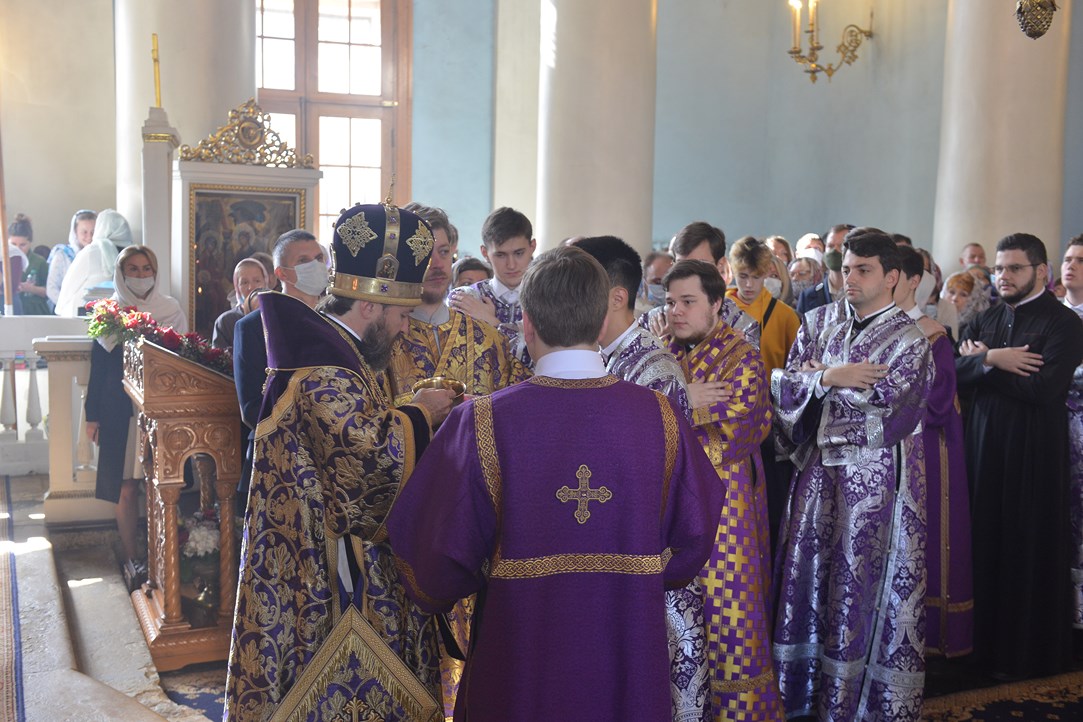

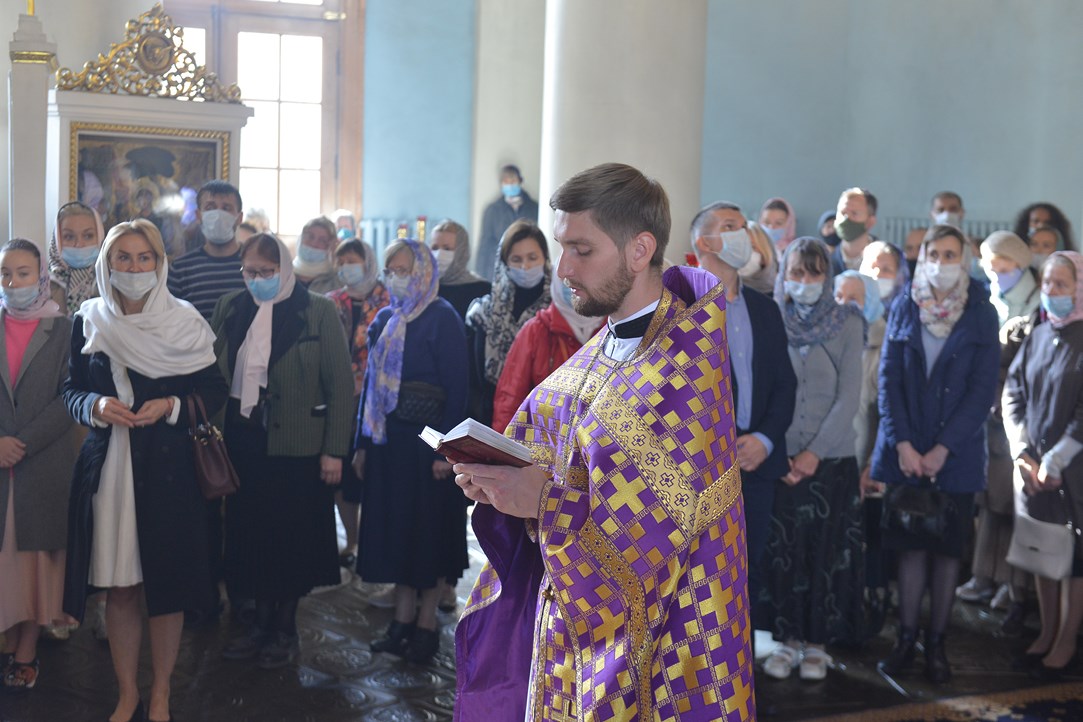
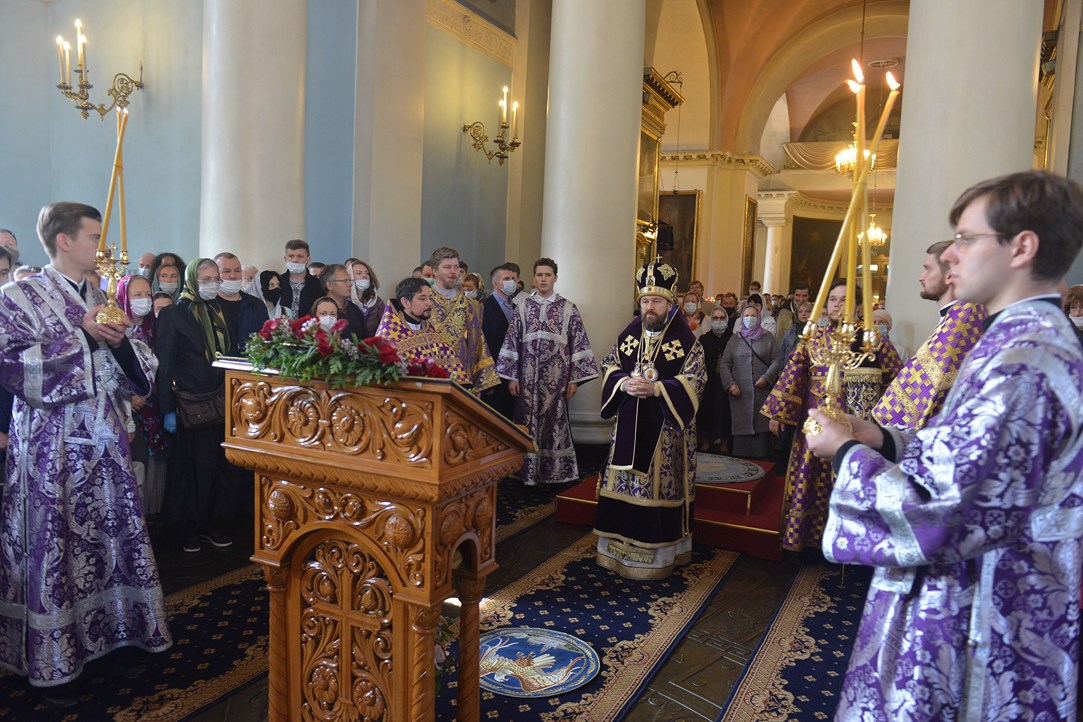
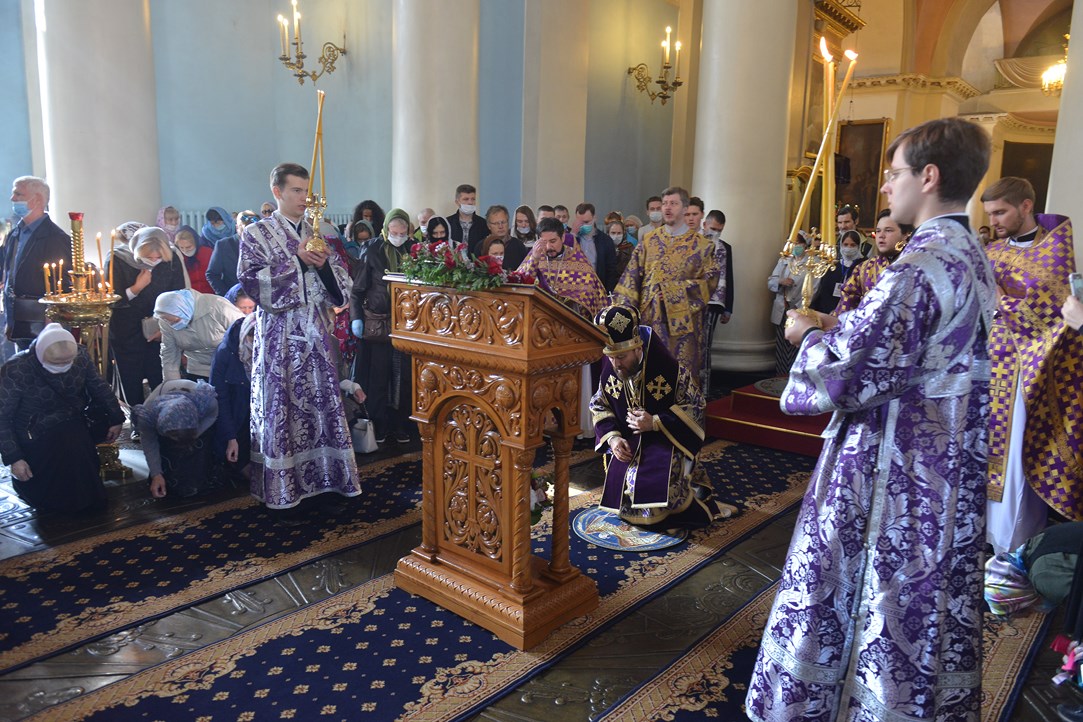

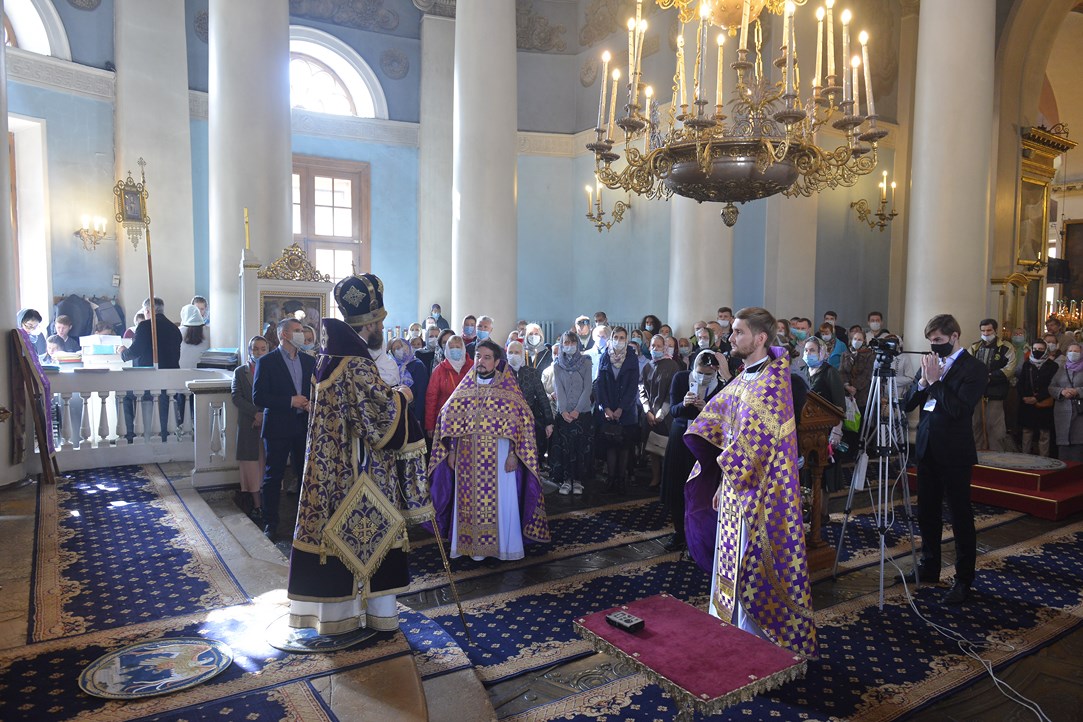
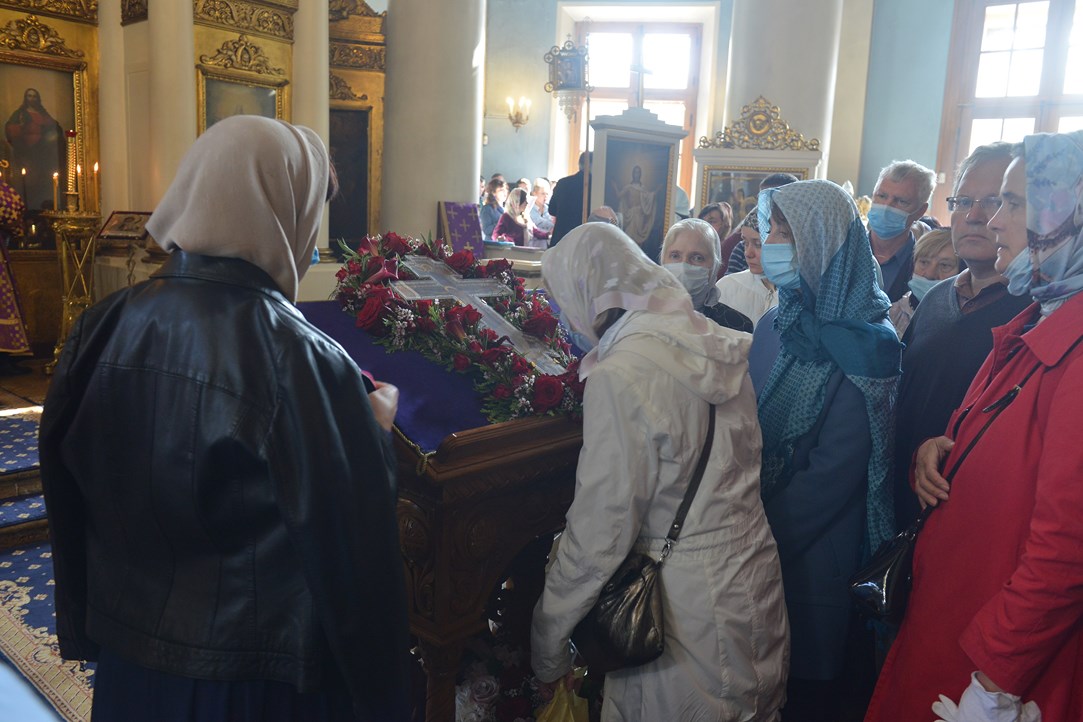

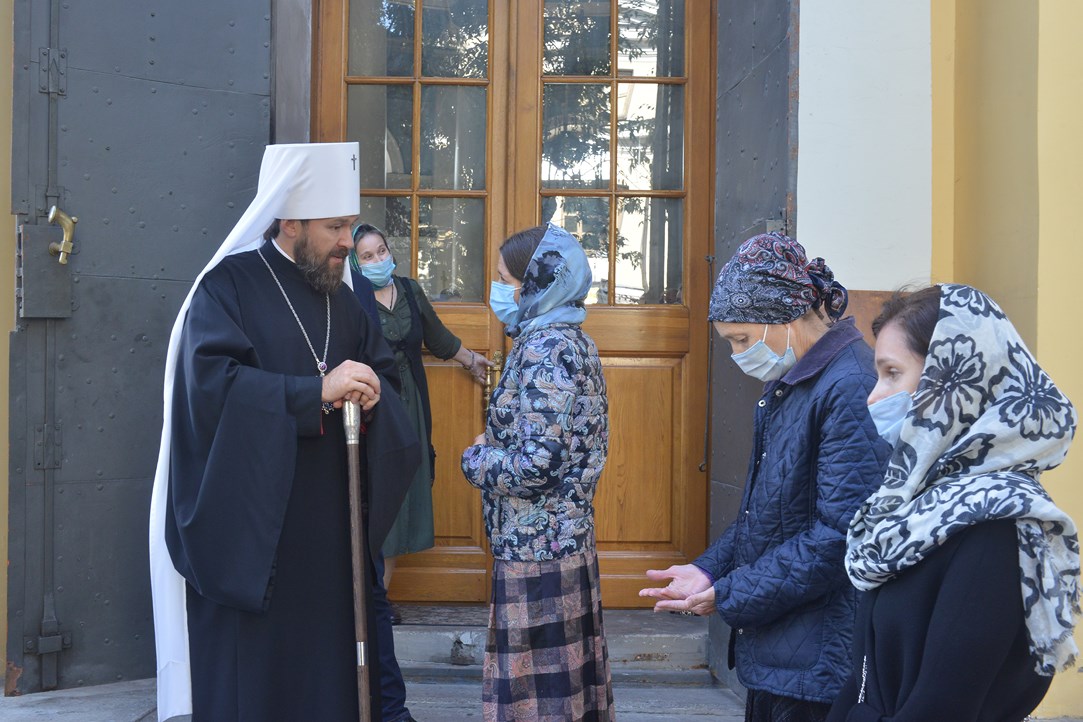

On 27th September 2020, feast of the Elevation of the Precious and Life-Giving Cross of the Lord, Metropolitan Hilarion of Volokolamsk, chairman of the Moscow Patriarchate’s Department for External Church Relations, celebrated the Divine Liturgy at the Church of the “Joy of All Who Sorrow” Icon of the Mother of God in Bolshaya Ordynka Street in Moscow.
Concelebrating with the archpastor were clerics of the church.
During the Litany of Fervent Supplication, prayerful petitions were offered for the deliverance from the coronavirus infection.
After the Litany of Fervent Supplication, Metropolitan Hilarion lifted up the prayer which is read at a time of harmful pestilence.
After the Liturgy, the prayer service of the Veneration of the Cross was conducted.
It was followed by a homily, in which the archpastor said:
“In the name of the Father, and of the Son, and of the Holy Spirit.
“Dear Fathers, dear brothers and sisters,
“Today we are celebrating the feast of the Elevation of the Precious and Life-Giving Cross of the Lord. This feast was set in honour of the events that had occurred in the 4th century when, by a decision of Emperor Constantine the Great, the city of Jerusalem had been turned into the largest Christian pilgrimage centre.
“Prior to that, on the site of the ancient Jerusalem destroyed by the Romans, for three centuries there existed a city called Aelia Capitolina. It was a pagan city with no landmarks which could remind people about the Lord Jesus Christ, His disciples or the ancient Kingdom of Israel. But when Christianity, thanks to Emperor Constantine, Equal-to-the-Apostles, came out of the catacombs and received the actual status of the Roman Empire’s official religion, people remembered about both the Christian shrines and the holy city of Jerusalem.
“Constantine the Equal-to-the-Apostles sent his mother, Empress Helen, to find the shrines that could still remain in the city. It was then that the Cross of the Lord was miraculously found. The Bishop of Jerusalem elevated the Cross so that people could see it. To mark this important event, the feast of the Elevation of the Cross was set, and yesterday during the All-Night Vigil we celebrated the rite of the Exaltation of the Cross.
“Today we have heard St. Paul’s following words: ‘The message of the cross is foolishness to those who are perishing, but to us who are being saved it is the power of God’ (1 Cor 1:18). That is to say, to those who are perishing the word of Christ is madness, while to us, who are being saved, this word is the power of God. ‘We preach Christ crucified, to the Jews a stumbling block and to the Greeks foolishness’ (1 Cor 1:23), St. Paul says to us today. These words mean that to the people raised in the heathen culture the message of Christ Crucified was akin to madness, because they could not understand how it was possible to worship the man who was crucified on the cross as God.
“Those of us who are familiar with the heathen mythology, with the ancient Greek gods and heroes know that the stories of their lives praise heroism, power and might, portraying them as some kind of ideal people. Of course, we are aware that they are fictional characters, or, as the Fathers of the ancient Church put it, they are demons who are portrayed by people as gods and heroes.
“When at the Areopagus in Athens Apostle Paul started speaking about Christ, His crucifixion and resurrection, his preaching caused nothing but laughter in the people raised in this heathen culture and heathen mythology. Members of the Areopagus said, ‘We will hear you again about this.’ They said so because the word of the Lord’s Cross was madness to them and they could not accept it at the time.
“But the Church of God glorified the Man Who laid down His life for the salvation of people and Who was not just a man, but God Incarnate. That is why for us all, His sufferings on the cross have entirely special meaning and entirely special importance. His death on the cross was redemptive. He died to redeem our sins, and today we are bowing down to the Cross of Christ which is being solemnly elevated for our veneration. We thank God Who came down to earth and became man, one of us, in order to take upon Himself our sins, infirmities and illnesses, to redeem us from eternal death and to grant unto us the Heavenly Kingdom and eternal life.
“For many centuries people, having embraced the tidings of Christ’s crucifixion and resurrection, have been building up their life so that this message be reflected in their deeds and their attitude to life and to those around them. Maybe, it is not fortuitous that the feast of the Elevation of the Cross coincided with the day of the demise of one of the greatest saints in the Christian Church – St. John Chrysostom. We commemorate his name at the dismissal of every Divine Liturgy, because the Divine Liturgy itself bears his name.
“John Chrysostom was one of the greatest preachers in the entire history of the Church. Yet, as it often happens to those who are renowned and enjoy popular favour, he was not in the good graces of those in power. Being the Archbishop of the capital city of Constantinople, St. John was slandered by his brethren and courtiers, deposed as bishop and sent into exile. Accompanied by warders, he went on foot from Constantinople to far-off Abkhazia, and there in the mountains, in the village of Comana, he, exhausted and emaciated, gave up the ghost to God. His last words were, ‘Glory to God for all things.’
“Such were the words left to us by St. John Chrysostom who had risen to fame thanks to his numerous homilies. One of his collected writings was published in the Russian language in 12 volumes, with each volume having over a thousand pages, and all his theology and all his life fit into one short phrase, ‘Glory to God for all things.’ He uttered these words not when he was at the height of his fame, not when he was well received in the court circles and the emperor’s chambers, and not when he preached and the crowd applauded, but when, left by everyone, exhausted and emaciated, he was giving up the ghost to God in a far-off country.
“What helped him on his path? Of course, it was the power of the Lord’s Cross, for he remembered how the Lord Jesus Christ had been going up to Golgotha, carrying His Cross. So, Saint John went up to his own Golgotha, carrying his cross. Remembrance of the Lord Jesus Christ gave him calmness, joy and strength to endure the ordeal that befell him.
“There was a woman, Olympias the Deaconess, who was close to John Chrysostom, assisting him when he served in Constantinople. When Saint John was deposed and sent into exile, Olympias was deeply grieved. So, while on his last earthly journey, he sent to her letters of consolation. It was not her who consoled him. No, he consoled her. These letters were preserved, and you can read them as ‘Letters to Olympias.’ If you read them you will see what spiritual strength this man had, with what calmness and confidence he went towards his own death, what unshakeable faith he had, how he could, even in difficult circumstances, comfort the person who showed sincere sympathy for him.
“We know many such stories, including those of the recent times when our holy new martyrs suffered and died for Christ. One of them, Holy Hieromartyr Constantine Lyubomudrov, served at our holy church and was its rector for some time. For centuries many other Christians have gained strength from the Cross of the Lord even in the hardest circumstances and sufferings, having realised that the Lord would not lay on them a cross that is beyond their power, would not send temptations that they could not resist. But in order to withstand these temptations, in order to feel the power of God in the midst of sufferings, we must pin our hopes not on ourselves, but on the Lord Jesus Christ, drawing the Divine strength from His Cross.
“The cross which was an instrument of dishonourable execution becomes the symbol of salvation for millions of people. And today we are elevating the cross in commemoration of the sufferings of our Lord Jesus Christ, in commemoration of the sufferings of martyrs and confessors. At the same time, we are looking at this sacred symbol with joy and hope, for we realise and feel that the Cross of the Lord received and took in the Divine grace. And today it is the source of our healing and salvation.
“Let us venerate the Cross of Christ and ask the Lord to help us carry our own cross which He laid on us. Let us ask Him that the power of Christ’s Cross may never leave us, strengthening us as we follow our earthly path, on which the Lord Himself – Crucified and Risen – leads us to the Heavenly Kingdom. Amen.
“I am greeting all of you with this feast day!”
DECR Communication Service
